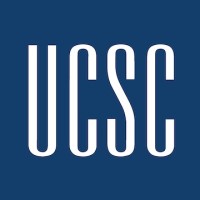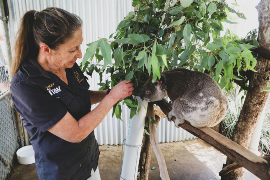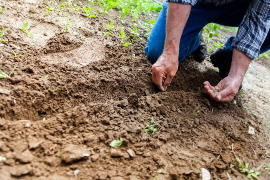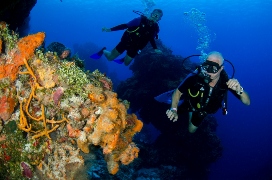Bachelor of Science in Ecology and Evolution (Bachelors)
UC Santa Cruz
Santa Cruz, CA
The ecology and evolution major focuses on general topics that are not specific to taxonomic group or habitat. As such it provides students with interdisciplinary skills necessary for understanding and solving complex problems in ecology, evolution, behavior, and physiology. All of these disciplines address questions on larger spatial and temporal scales that can be applied to important environmental problems, including genetic and ecological aspects of conservation biology and biodiversity.
Students majoring in ecology and evolution will receive a B.S. degree based on an integrated series of courses providing breadth in fundamental areas of biology and allied sciences that enhance understanding of evolutionary and ecological processes. The capstone of this curriculum is a suite of field courses providing students unique opportunities to learn and conduct research in a host of ecological systems. Students are encouraged to take field courses in their areas of specialization. Other opportunities include participation in research projects with faculty sponsors and the intensive UC Education Abroad Programs (UCEAP) in Costa Rica (tropical biology) and Australia (marine sciences).
Kết quả học tập của chương trình
The undergraduate curriculum offered by EEB is designed to ensure that all students declared in any EEB-sponsored major will achieve the following seven program learning outcomes:
✔ Students will demonstrate broad-based knowledge of the fundamentals of ecology, behavior, evolution and physiology and the relationships among these disciplines.
✔ Students will demonstrate skills in the observation and experimental study of organisms, using both field-based and laboratory-based approaches.
✔ Students will demonstrate skills in identifying, accessing, comprehending and synthesizing scientific information, including interpretation of the primary scientific literature. This includes understanding key questions and hypotheses, interpreting results and conclusions, and evaluating quality through critique.
✔ Students will demonstrate the ability to conceive and execute independent scientific research, including developing their own questions and hypotheses, designing an appropriate theoretical or empirical/experimental approach, executing that approach, and analyzing and interpreting data.
✔ Students will demonstrate an ability to understand and apply fundamental quantitative skills, including models and statistical analyses, so as to properly interpret published research and apply such skills in their own research.
✔ Students will demonstrate the ability to communicate scientific work, such as a scientific paper, proposal, essay, or notebook, in written, oral or poster format.
✔ Students will exhibit strong teamwork and problem solving skills. They will demonstrate the ability to make arguments from evidence and work together to find optimal solutions.











